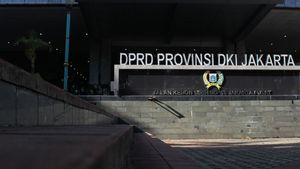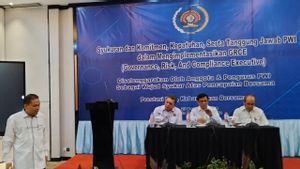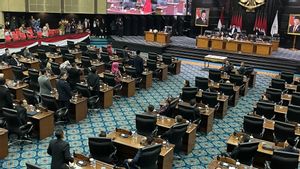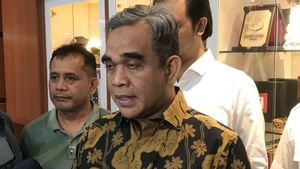The death of an orthopedic and traumatological specialist at the West Sulawesi Hospital (Sulbar), dr. Helmiyadi Kuswardhana is in the spotlight of Commission IX of the DPR. They encourage the Government to give birth to more specialist doctors in Indonesia.
"I am sorry for the death of dr. Helmiyadi, who is the mainstay of West Sulawesi residents. I hope this will be an evaluation for the Government to increase the creation of specialist doctors," said Member of Commission IX DPR Arzeti Bilbina, Tuesday, July 23.
Before he died, dr. Helmi, who is also known as a health content creator, carried out 10 operations in one day in two hospitals. This must be done because the doctor, who is still relatively young, is the only bone specialist in West Sulawesi.
According to data from the Indonesian Medical Consil (KKI), West Sulawesi itself is included in the top 5 of the province which lacks specialist doctors. Apart from West Sulawesi, there are also North Maluku, North Kalimantan, and Papua.
"Hearing the news that the deceased had to carry out operations 10 times a day, it was quite heartbreaking. Like this is a portrait of the quality and quantity of our health services, especially in the regions," he said.
Indonesia is known to face significant challenges in the shortage of specialist doctors. Based on information, 266 of the 415 Regional General Hospitals (RSUD) in districts/cities do not yet have sufficient basic specializations such as pediatric specialists, obgyns, surgery, internal medicine, anesthesia, radiology, and clinical pathology.
Many hospitals in the regions do not have complete specialist doctors, one of which is because most specialist doctors are concentrated in big cities which cause uneven distribution and lack of specialist doctors in many regions.
Arzeti said the case of dr. Helmi is one example.
"This further indicates that Indonesia is facing significant challenges in terms of the shortage of specialist doctors," said Arzeti.
SEE ALSO:
Furthermore, Arzeti said the uneven distribution of doctors was also a health problem for Indonesia. Of the 59,422 specialist doctors integrated in Indonesia, according to Indonesian Medical Consil data (KKI), there are only 11 specialist doctors on duty in West Sulawesi.
This number also includes all doctors from 46 specialization groups, ranging from pediatricians (Sp.A), surgeons (Sp.B), to groups of dentist specialists such as orthodonti (Sp.Oft) and forensic odontology (Sp.OF).
"And this also happens in other areas. This condition is very disturbing because with the lack of doctors, health services to the community will certainly not be optimal," said Arzeti.
"The problem of the lack of specialist doctors has often become our discussion at Commission IX of the DPR with the Minister of Health. This is our common homework so that the shortage of specialist doctors can be resolved immediately," continued the legislator from the East Java I electoral district.
Based on information, dr. Helmiyadi died after having a heart attack. The figure of dr. Helmiyadi himself is known to often educate the public through his social media content about joint or bone disease.
The content made by dr. Helmi received a positive response from the community. This can be seen from the number of followers or followers on Instagram reaching 523 thousand and TikTok reaching 1.2 million followers.
Arzeti also praised the efforts of doctors who often provide education to the public by utilizing social media, or through other means.
"Currently, many doctors are called to provide health services to the public outside the control rooms or hospitals," he said.
"I hope that more doctors are willing to provide health education through social media that is easily accessible to the public and has a very wide reach," continued Arzeti.
On the other hand, Arzeti asked the Government to immediately issue a national health master plan no later than August 2024 as targeted.
"Because it can be a guideline for the Government and the wasta to encourage the development of the health sector, including specialist medical education," he appealed.
The English, Chinese, Japanese, Arabic, and French versions are automatically generated by the AI. So there may still be inaccuracies in translating, please always see Indonesian as our main language. (system supported by DigitalSiber.id)

















